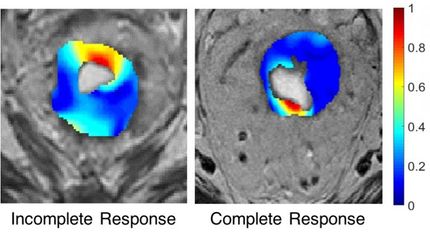Aeterna Zentaris Reports Final Results of a Phase 2 Study of Perifosine in the Treatment of Colorectal Cancer
Aeterna Zentaris Inc. reported final results on the clinical activity of perifosine (KRX-0401), the Company's novel, potentially first-in-class, oral anticancer agent that inhibits Akt activation in the phosphoinositide 3-kinase (PI3K) pathway, in combination with capecitabine (Xeloda(R)) as a treatment for advanced, metastatic colorectal cancer.
In this randomized, double-blind, placebo-controlled study conducted at 11 centers across the United States, heavily pre-treated patients with second- or third-line metastatic colorectal cancer were randomized to receive capecitabine (a chemotherapy used in advanced metastatic colorectal cancer which is marketed by Roche as Xeloda(R)) at 825 mg/m2 BID (total daily dose of 1650 mg/m2) on days 1 - 14 every 21 days plus either perifosine or placebo at 50 mg daily. The study enrolled a total of 38 patients, 34 of which were third-line or greater. Median age of patients was 65 (32-83); 61% of the patients were male. Of the 38 patients enrolled, 35 patients were evaluable for response (20 patients on the perifosine + capecitabine arm and 15 patients on the placebo + capecitabine arm). Three patients on the placebo + capecitabine arm were not evaluable for response (2 patients were inevaluable due to toxicity (days 14, 46) and 1 was inevaluable due to a new malignancy on day 6). All patients in the perifosine + capecitabine arm were evaluable for response.
The P-CAP arm demonstrated a statistically significant advantage for TTP and OS, as well as for the percentage of patients achieving Stable Disease (SD) or better lasting 12 or more weeks, as compared to the CAP arm. The P-CAP arm demonstrated a greater than 60% improvement in OS, a more than doubling of median TTP, and almost a doubling of the percentage of patients achieving SD or better. In addition, the ORR was 20% (including one CR, and durable responses) in the P-CAP arm versus 7% in the CAP arm.
All 38 patients were evaluable for safety. The P-CAP combination was well-tolerated with Grade 3 and 4 adverse events of (greater than) 10% incidence for the P-CAP arm versus CAP arm as follows: hand-foot syndrome (30% vs. 0%), anemia (15% vs. 0%), fatigue (0% vs. 11%) and abdominal pain (5% vs.11%). Of note, incidence of Grade 1 and 2 hand-foot syndrome was similar in both the P-CAP and CAP arms (25% vs. 22%, respectively). Hand-foot syndrome is a reported adverse event with capecitabine monotherapy. Patients who remained on treatment longer in the Phase 2 study had a greater chance to develop hand-foot syndrome, as illustrated by a median time to onset of Grade 3 and 4 hand-foot syndrome in the P-CAP arm of 19 weeks.
Based on the Phase 2 data, a Phase 3 randomized double-blind trial comparing perifosine + capecitabine vs. placebo + capecitabine in patients with advanced refractory colorectal cancer (X-PECT trial : Xeloda(R) + Perifosine Evaluation in Colorectal cancer Treatment), under Special Protocol Assessment (SPA) from the FDA, is open and enrolling patients at multiple centers throughout the US.
Juergen Engel, Ph.D., President and Chief Executive Officer of AEterna Zentaris, commented, "We are very pleased with the positive final data of this Phase 2 study, as they continue to demonstrate perifosine's potential as novel agent for the treatment of colorectal cancer. They are also encouraging regarding our current Phase 3 trial in this same indication, since its design is based on results of this Phase 2 trial."
Most read news
Other news from the department research and development

Get the life science industry in your inbox
By submitting this form you agree that LUMITOS AG will send you the newsletter(s) selected above by email. Your data will not be passed on to third parties. Your data will be stored and processed in accordance with our data protection regulations. LUMITOS may contact you by email for the purpose of advertising or market and opinion surveys. You can revoke your consent at any time without giving reasons to LUMITOS AG, Ernst-Augustin-Str. 2, 12489 Berlin, Germany or by e-mail at revoke@lumitos.com with effect for the future. In addition, each email contains a link to unsubscribe from the corresponding newsletter.






















































